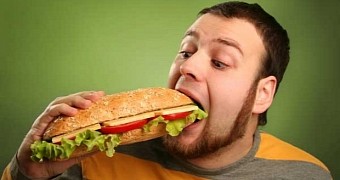Modern society has a serious obesity crisis on its hands - there were 2.1 billion obese people in the world in 2013, and odds are this figure has since increased - and by the looks of it, hectic sleep patterns might have a say in the matter.
According to a report published in the Journal of Health Psychology just yesterday, June 1, evidence indicates that sleep deprivation correlates with an increase in appetite. Plainly put, it seems that guys and gals who don't get enough sleep tend to eat more.
Waistline trouble aside, this puts them at a greater risk of developing other health complications like diabetes and heart disease. The best way to avoid these issues: getting more rest and better controlling food intake throughout the day.
“It is well recognized that food intake is implicated in many chronic health issues including obesity, diabetes and heart disease, and diet is often a target of treatment to prevent the onset of these conditions,” University of Nebraska-Lincoln experts say.
Writing in the Journal of Health Psychology, the scientists go on to explain that it's not just adults who risk health trouble if they don't get enough sleep and consequently start eating more. Au contraire, children are also vulnerable.
How sleep deprivation affects eating behavior
It's no news that, when tired, the majority of people have trouble focusing and going about their daily routine with quite as much enthusiasm. Well, scientists are here to tell us that tiredness appears to also influence what and how much we eat.
University of Nebraska-Lincoln specialists Alyssa Lundahl and Timothy D. Nelson say that, when we are not properly rested, our body begins to crave more food in an attempt to boost energy levels. Hence the fact that it sends us in search of sugary and other high-calorie treats.
The researchers go on to explain that, as a result of sleep deprivation, most folks also experience a great deal of stress, especially of the emotional kind. Consequently, self-control doesn't work all that well and resisting cravings becomes more difficult.
Together with their colleagues, scientists Alyssa Lundahl and Timothy D. Nelson argue that, when it comes to helping people embrace healthier eating habits, medical experts should also take into account the effects that something as simple as tiredness can have on appetite.
“Health psychologists should be mindful of the link between sleep and eating, and sleep should be actively considered in efforts to modify dietary behavior,” the researchers reinforce, as cited by EurekAlert.

 14 DAY TRIAL //
14 DAY TRIAL //